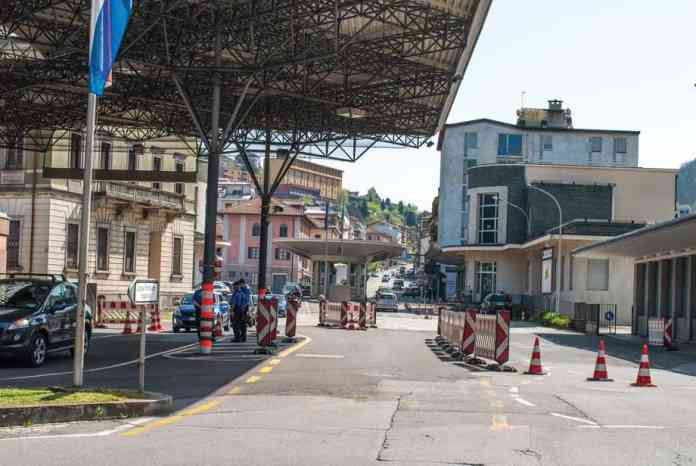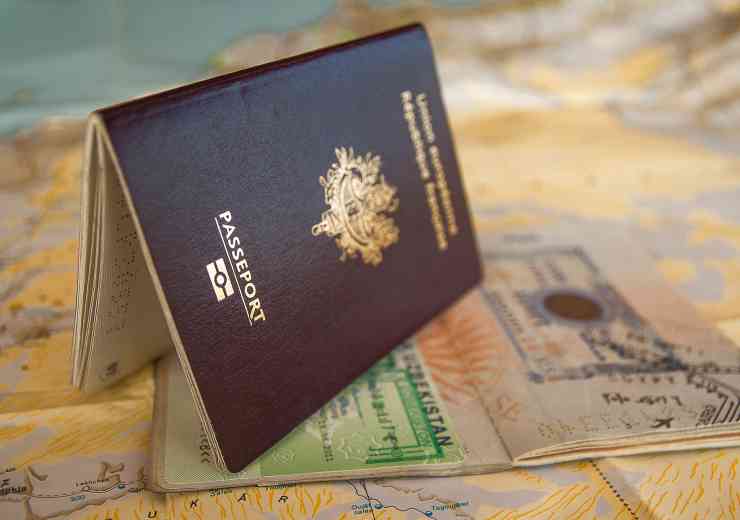
Protecting borders and enhancing collaboration
The World Borderpol Congress is the only multi-jurisdictional transnational platform where the border protection, management and security industry policy-makers and practitioners convene annually to discuss the international challenges faced in protecting borders. This year’s event received over 150 delegates from more than 47 countries for the most successful Congress to date.
Despite being called to an emergency meeting in Greece, Klaas Dijkhoff, The Netherlands State Secretary of Security and Justice and Minister for Immigration, still managed to deliver his opening keynote presentation via a prepared video, which was followed by the delivery of a keynote presentation by Brigadier General Pieter Simpelaar, Commander of the Royal Netherlands Marechaussee Schiphol District.
The operation of today’s border security, traveller and migration management community is being stressed by geopolitical, social and economic events. Our world is fully interdependent, and it is becoming ever more challenging to find solutions which include the utilisation of border services and agencies to protect national security.
As a number of regional crises continue to escalate, economic sanctions and travel bans are being increasingly employed by the USA, EU, and Russia, as well as their allies. Border services are front-line responders for monitoring these sanctions and bans. As the challenges of mass illegal migration across the Mediterranean Sea peaked during the summer period, Italy and Greece, among other European countries, have seen tens of thousands of refugees seeking sanction on the Continent. Many more come via the Balkans or Eastern European countries to seek the ‘sanctuary’ of the European Community.
Border services
Whether asylum seekers or economic migrants, the numbers are proving a challenge for the European Community and its border and law enforcement agencies, as well as the problems of identifying those genuine asylum seekers arriving without any form of documentation. As the post-World War One borders of Iraq evaporate and a new entity known as the Islamic State of Iraq and the Levant (ISIL) emerges, hundreds of thousands of persons are being displaced and are fleeing the region. Border services are now front-line responders for monitoring, recording and directing the movement of these people, most of whom will be refugees.
ISIL will continue to look for soft western targets wherever it can and by so doing de-stabilise vulnerable states like Tunisia and Algeria, dependent on Western tourism or oil for their economy. It will continue to attract foreign youth who can one day return home as trained terrorists and the growing challenge for agencies is identifying and restricting the movement of such people. While the United States deals with an unprecedented and clearly well-orchestrated movement of tens of thousands of people – mostly children and adolescents from Central America – arriving at its border with Mexico, its border services are monitoring, detaining and caring for these people in unprecedented numbers.
As China, the world’s most populous nation, develops a formidable navy and air force and is poised to succeed the US as the world’s number one economy, it is flexing its economic and political muscle in Asia and beyond. Border services everywhere are now being pressed to be front-line responders monitoring the import and export of strategic goods and services to and from China.
Since the end of the Cold War, there has been a deeply-held belief within the developed world that political and economic integration is the best way to improve global security and avoid potential conflict everywhere. This has created a paradox: an interdependent world is supposed to make it less likely that extreme conflict between nations or groups of nations will occur. This very interdependence makes it imperative that nations cooperate, communicate and consult with one another in a multi‑jurisdictional and inter-disciplinary manner.
World Borderpol Congress
The 4th World Borderpol Congress brought together the like-minded leaders of the world’s border security establishments, to contribute to making the world a safer place and discuss some of the latest issues and challenges facing our borders and agencies tasked with protecting and managing them.
The Congress programme included situational overviews in the opening plenary ‘Trafficking: Human, Drug, Contraband and CBRNe’ and explored how trafficking remains one of the major issues for border security and management agencies. Whether humans, drugs, contraband or CBRNe proliferation, trafficking provides major challenges that affect peoples lives and national economies, whilst proving hugely profitable for organised criminal gangs. Different regional issues provide global challenges. On the opening day of the Congress, Louis Voiron, director of strategy for Borderpol, chaired a discussion asking from where do these activities transpire and what can be put in place to mitigate the problems?
This years Congress also saw discussions on ‘Big Data and Cross Border Cyber Crime’. Hosted by Tom Tass, director general at Borderpol, the session asked delegates to consider how our borders of tomorrow will be protected when the borders of today fail to serve as protection against illegal immigration and cross-border organised crime? Revealing that 80 per cent of all big crime is now conducted on internet and organised crime has now become immune to prosecution, Ricardo Baretzky, president of Cyberpol, Krum Garkov of EU-LISA and Chris Brown of Basis Technology debated how agencies can share information and manage big data without being compromised by cyber policy, law or security issues.
Topical discussions
Borderpol also held many topical discussions, including a discussion on ‘Land Borders: The Challenges and Solutions’. Land borders provide great challenges for border agencies to monitor and protect lengthy borders with limited resources. For extended land borders, this challenge is enhanced, giving greater opportunities to the organised criminal gangs. Borderpol’s Zoltan Szabo addressed the latest challenges facing our agencies and whether it is possible to enhance the protection and management of land borders.
Elsewhere, ‘Maritime, Port and Coastal Border Security’ was explored by Ken Richardson, deputy director general at Borderpol. Coastal border security has become an increasing challenge for coast guards and border agencies, with long sea borders and busy ports proving difficult terrain for surveillance and monitoring. Richardson analysed the latest challenges facing our maritime border agencies and how we can best guard the coast and major ports from international organised criminal activities.
Additionally, Richardson also addressed ‘Speeding Up the Screening Process: Trusted Travelling, Profiling, Programs and Solutions’, which explored the current challenges in the identification and tracking of terrorists and criminals and the solutions for curtailing their movement, whilst trying to promote a smoother and speedier experience for genuine trusted travellers.
Another interesting discussion at this years show was ‘Curtailing the Movement of International Terrorists and Criminals’. Tony Smith, director of International Relations at Borderpol, suggested that spotting a terrorist and stopping them travelling is a challenge. Often the intelligence on such persons is discovered after they have boarded or crossed the border.
The use of intelligence analysis and national security information sharing can greatly assist border agencies upstream intelligence to prepare for such events prior to their movement. Smith asked what are the current challenges in the identification and the tracking of terrorists and criminals and the solutions for curtailing their movement?
The next gathering of border and migration management professionals will take place Athens, Greece on 6-8 December 2016.
digital issue




















